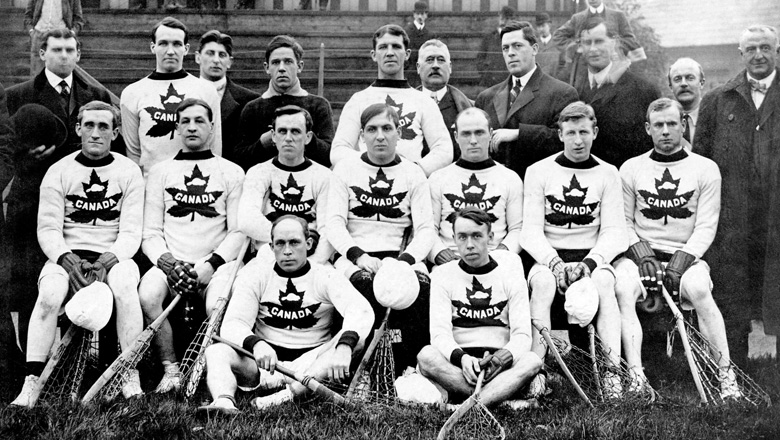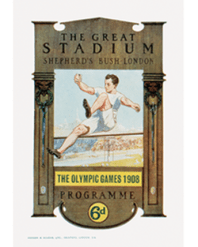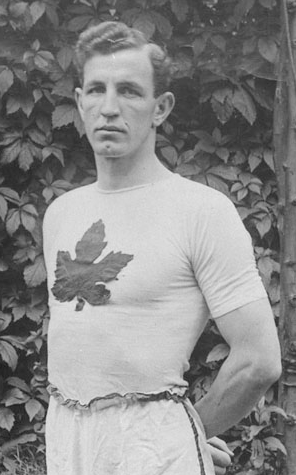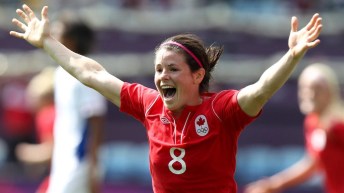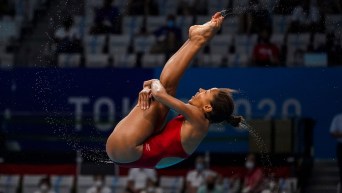London 1908
Team Canada Medal Count
Flag Bearers
Opening Ceremony
Games Summary
Games of the IV Olympiad
Originally awarded to Rome, the 1908 Olympic Games were reassigned to London in 1906 when it became apparent that the Italian city was not prepared and money from the government had to be diverted to rescue and recovery efforts following the eruption of Mount Vesuvius.
For the first time ever, a main stadium (White City Stadium) was constructed especially for the Games, playing host to the Opening Ceremony, athletics, swimming, cycling, gymnastics, archery, fencing, and wrestling. These were also the first Olympic Games to include a winter sport, as figure skating was contested thanks to the availability of artificial ice. The now-official marathon distance of 42 kilometres and 195 metres was created to ensure that the race which started at Windsor Castle would finish below the Royal Box in the White City Stadium.
Another first was the introduction of the Parade of Athletes in the Opening Ceremony, as national teams marched behind the flags of their respective countries.
It was also at London 1908 that Pierre de Coubertin conceived of the idea for the Olympic Creed, inspired by a sermon by Ethelbert Talbot, Bishop of Central Pennsylvania, at a service for Olympic athletes at St. Paul’s Cathedral.
Canada’s 91 athletes won 16 medals, which included a trio of double medallists: Robert Kerr (athletics, 200m gold and 100m bronze); Walter Ewing (shooting, trap gold and team trap silver); George Beattie (shooting, trap silver and team trap silver). The shooting duo gave Canada it’s first ever 1-2 finish in Olympic competition, a feat that would not be matched until the 1998 Olympic Winter Games in Nagano. Canada also won its second straight Olympic gold medal in lacrosse.
Olympic Oath (athletes): none
Olympic Oath (officials): none
Olympic Oath (coaches): none
Lighting Olympic Cauldron: none
Official Opening: His Majesty King Edward VII

